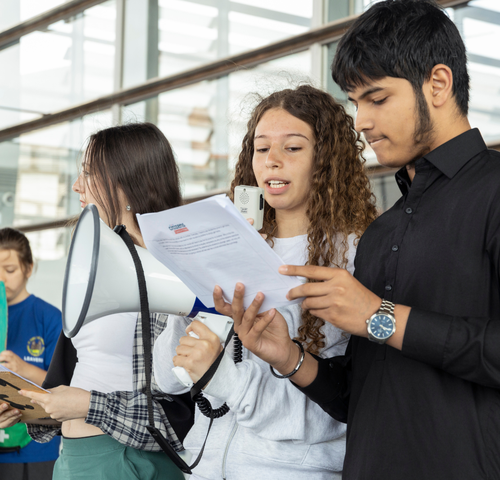Aid agencies call for urgent action on child refugees ahead of government debate
New research reveals that there are at least 157 children living on their own in the Calais camp with family in the UK
Leading aid agencies Save the Children, Citizens UK, UNICEF UK and Help Refugees are calling for the government to take urgent action on unaccompanied refugee children in Europe.
The intervention comes as new research from Citizens UK identifies 157 vulnerable children living alone in the Calais jungle camp who have close family members in Britain and should legally be reunited here.
Parliament will debate the issue of unaccompanied children as part of the Immigration Bill on Monday. Last year, approximately 95,000 refugee and migrant children travelled to Europe on their own, or lost their families on the dangerous journey, and the four aid agencies working on the refugee crisis say more needs to be done to protect them.
Some of the children with family links to the UK identified by Citizens UK in Calais are as young as 10. Many of them are traumatised by the wars they have fled from, and are living rough in the camp, but face a long wait and complex bureaucratic procedure before they can be reunited with their families and given a safe home.
Neil Jameson CBE, from Citizens UK, says: “The fact that children who have a legal right to come to the UK are living alone in tents in Calais is a national embarrassment. The UK has a proud history of offering sanctuary to people in need. The government needs to step in and speed up the reunification process for those children and their families.”
Save the Children also warned of the dangers facing lone child refugees in Greece, where more than 2,000 children are trapped on their own after the sudden closure of the Balkans route. The Greek system is overwhelmed, with the safe shelters for unaccompanied children completely full with long waiting lists. And in Italy, more than 450 children arrived on their own from Libya in less than 48 hours last week [14th April].
Tanya Steele, Save the Children CEO, says: “Refugee children who have fled wars on their own to seek sanctuary in Europe urgently need our help and protection. We should be speeding up family reunification so that children with relatives in the UK can live in safety with them, but must also reach out a hand to those vulnerable children who have arrived in Europe and have no family to join.”
Lily Caprani, UNICEF UK’s Deputy Executive Director says: “It is simply an injustice that the life of any child, anywhere has put on hold for all this time – these children in Calais have families waiting for them here in the UK. They cannot be left like this in this state of limbo. These are just some of the unaccompanied children who have the legal right to be reunited with family, who could be here if the system worked. The Government must do all it can to make sure family reunion procedures work for children, putting their best interests at the heart of every decision.”
Josie Naughton, Co-Founder of Help Refugees, commented: “There are hundreds of unaccompanied children in Calais and thousands across Europe, scared, alone and extremely vulnerable. According to Europol, 10,000 refugee children are missing in Europe. This is the same number of children that the kindertransport rescued from Nazi persecution. We hope our government remains on the right side of history.”
The implementation of the EU-Turkey deal and border closures could be making the situation even worse for unaccompanied children in Europe. In the chaos, they are at risk from abuse, violence, psychological trauma and exploitation by people traffickers and criminal gangs.
UNICEF and other humanitarian organisations warn that the deal does not do enough to address the pressing humanitarian needs of 22,000 refugee and migrant children stranded in Greece, and is putting these children at risk. The new agreement could push children and families into taking other more dangerous routes, including the central Mediterranean Sea.





